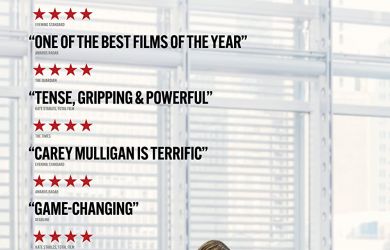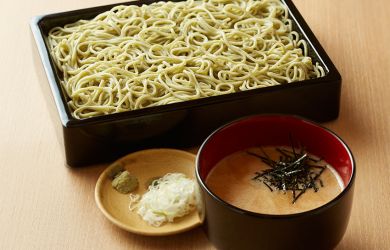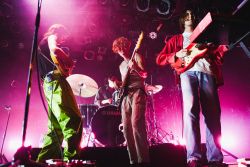
Originally published on metropolis.co.jp on July 2013

It’s been three years since Metropolis last talked with Vampire Weekend’s Rostam Batmanglij at the Fuji Rock Festival. The New York pop band was new to Japan and jazzed about their appearance at the country’s key music event. As it happened their set served as a coming out for the group in Japan, and it’s been an upwards ascent here ever since.
“Japan is one of the only places where we grew considerably in terms of our following between our first and second albums,” Batmanglij says from his New York home.
How did that come about? “It was word of mouth,” he answers. “I think Japanese culture lends itself to discussing things, and people got more interested in our band—some also say our melodies appeal to Japanese tastes.”
Not that Vampire Weekend’s popularity has declined elsewhere. The band’s third album Modern Vampires of the City debuted this spring atop the charts—their second number one outing in a row. The title is inspired by a lyric from the song “One Blood” by Junior Reed, explains Batmanglij. “We liked the way that it indirectly connects with some of the themes on the record, but we also made a conscious decision to take inspiration from this idea of the city at night.”
Frontman Ezra Koenig and producer and multi-instrumentalist Batmanglij got together in Batmanglij’s Brooklyn apartment four times a week for about a year, he adds. “I live right underneath the Manhattan Bridge in an old factory so I can see the skyline.”
Some songs came together in a flash; others took more time. “The album benefitted from having both kinds of writing,” Batmanglij believes. “One thing we realized on this record is that it was time to maybe write the best songs we could write, and not settle for a mediocre album. The record also deals with getting older. Time is a theme that plays into the album.”
“Don’t Lie,” with its simple chorus and tinkling steel drum, was one of the fast ones. Batmanglij says the track emerged quickly at the end of the process. “Ezra and I took a trip to Martha’s Vineyard and we devoted ourselves to writing songs,” he recounts. “I wrote about five or six chord progressions, but Ezra was the one who helped me see the light—he just started singing gibberish off the top of his head, and the whole thing came together in about 30 minutes.”
Despite their indie roots and Batmanglij’s background in music at Columbia College, where he hooked up with Koenig, drummer Chris Tomson and bassist Chris Baio, Vampire Weekend is first and foremost a pop band—but one always ready with an intelligent quip. Still, Batmanglij insists they are un-ironic. “It’s definitely playful,” he grants, “but we’re not trying to do anything for the sake of cleverness alone.”
Batmanglij and Koenig do embrace classic pop song forms. “There’s nothing wrong with conforming to structures because you can put something deeply unconventional inside a traditional structure,” he says. “In fact, it’s probably good to put it in the context of something more digestible.”
As they approach 30 years old and a decade as a band, the members of Vampire Weekend seem to have reached a new plateau of artistic and commercial success—yet they’re still at the beginning of their careers. Could it get any better?
“I do feel like we have a long run left in us. We went through a lot of stuff on this record and solidified things in certain ways. We really focused on songwriting—as long as we do that I think we have our priorities right,” Batmanglij says.
As to the larger meaning of his chosen profession: “The reason music exists has something to do with making a direct physical connection with the body, without actual touch being involved,” Batmanglij offers. “The way sound waves affect you is powerful and extremely direct. It can change your mood and the way you perceive things—and change your consciousness.”





